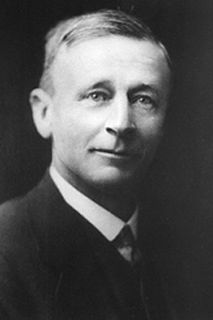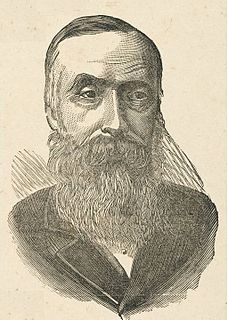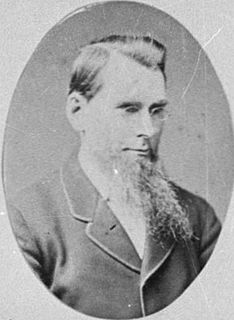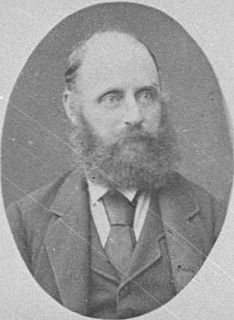
The New Zealand general election of 1879 was held between 28 August and 15 September 1879 to elect a total of 88 MPs to the 7th session of the New Zealand Parliament. The Māori vote was held on 8 September. A total of 82,271 (66.5%) European voters turned out to vote, plus 14,553 Māori voters. Following the election, John Hall formed a new government.

The Dictionary of New Zealand Biography (DNZB) is an encyclopedia or biographical dictionary containing biographies of over 3,000 deceased New Zealanders. It was first published as a series of print volumes from 1990 to 2000, and then on a website from 2002. The dictionary superseded An Encyclopaedia of New Zealand of 1966, which had 900 biographies. The dictionary is managed by the Ministry for Culture and Heritage of the Government of New Zealand. An earlier work of the same name in two volumes, published in 1940 by Guy Scholefield with government assistance, is unrelated.
The following lists events that happened during 1882 in New Zealand.

Francis "Frank" Joseph Rolleston was a New Zealand politician of the Reform Party.

Thomas Dick was a 19th-century New Zealand politician. Originally a merchant, he worked in London and then represented his firm on Saint Helena for seven years. From there, he was sent to Dunedin as the company's representative; he emigrated with an extended family. He soon became involved in politics and was Superintendent of Otago Province from 1865 until 1867. Over a period of 24 years, he represented various Dunedin electorates in Parliament and was Colonial Secretary (1880–1884), Minister of Justice from 1881 to 1882, and Minister of Education from 1881 to 1884. A deeply religious man, he was involved in many church affairs. He was one of the founders of Hanover Street Baptist Church; the building is now classified as Category I by Heritage New Zealand.

Eden, a former New Zealand parliamentary electorate, lay in the general area of the suburb of Mount Eden in the city of Auckland.
John Christopher Rolleston was a Reform Party Member of Parliament in New Zealand.

The Sewell Ministry was the first responsible government in New Zealand. It formed in 1856, but lasted only one month, from 18 April to 20 May. From 7 May onwards, Henry Sewell was Colonial Secretary, considered to be the equivalent of Prime Minister. Thus, Sewell became the first Prime Minister of New Zealand.
The third New Zealand Parliament was a term of the Parliament of New Zealand. Elections for this term were held between 12 December 1860 and 28 March 1861 in 43 electorates to elect 53 MPs. Two electorates were added to this during this term, Gold Fields District and a new Dunedin electorate created by splitting the existing City of Dunedin into Dunedin and Suburbs North and Dunedin and Suburbs South, increasing the number of MPs to 57. During the term of this Parliament, six Ministries were in power.

Richard Oliver was a 19th-century Member of Parliament in Dunedin, Otago, New Zealand.

Frederick Alexander Whitaker was a 19th-century member of parliament in the Waikato region of New Zealand.
The 7th New Zealand Parliament was a term of the Parliament of New Zealand.
The 8th New Zealand Parliament was a term of the New Zealand Parliament.
Alexander Shepherd was the second Colonial Treasurer of New Zealand.

The Continuous Ministry was the government of New Zealand from 1876 to 1890, except for 1877–79 and 1884–87.

Richard Eddy was a New Zealand labourer and trade unionist. He was a member of the New Zealand Legislative Council from 23 June 1941 to 22 June 1948; then 23 June 1948 to 31 December 1950 when the Council was abolished. He was appointed by the First Labour Government
The 1878 Waipa by-election was a by-election held on 24 July 1878 during the 6th New Zealand Parliament in the electorate of Waipa in the Waikato.












